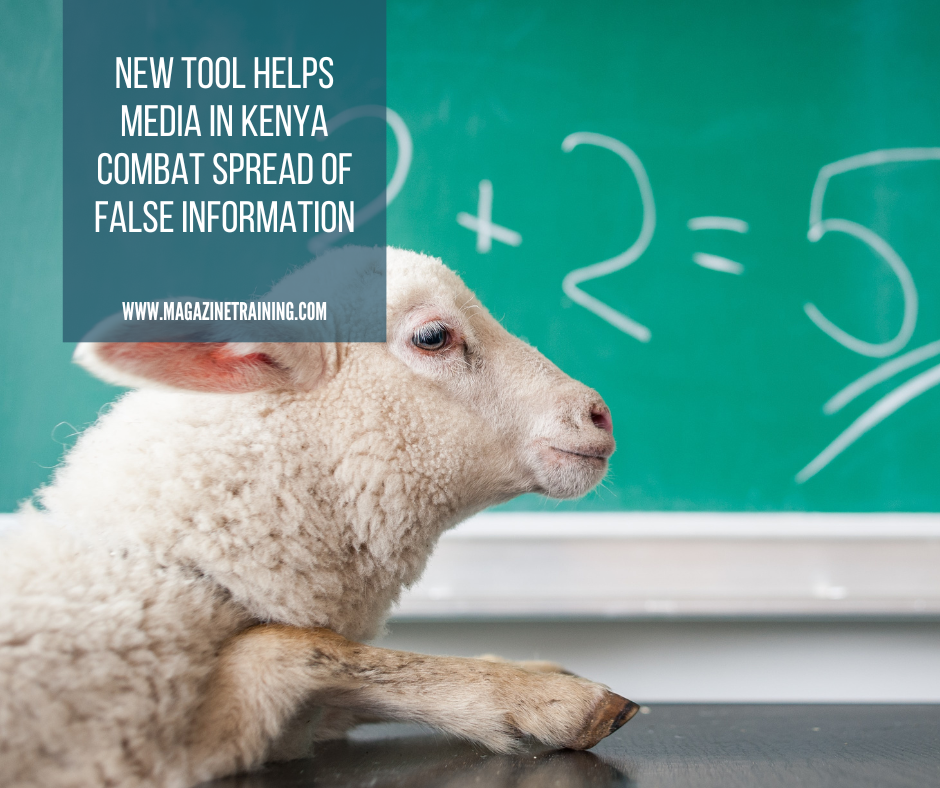
Misinformation is increasingly difficult to combat in Kenya as internet use in the country grows rapidly. Over the past few months in particular, with Kenyan elections looming on August 9, the country’s social media space has turned into a platform for propagating mis- and disinformation.
In past political campaigns, candidates have made claims later found to be misleading. Propaganda is not uncommon, as campaign teams use it to distort their opponents’ messages and promote themselves. They have, for instance, regularly manipulated photos of crowds attending their events to project exaggerated impressions of popularity.
To address the spread of disinformation during the 2022 election season and beyond, the Media Council of Kenya (MCK) in collaboration with the United Nations Development Programme launched the iVerify Network of Fact-checking Desks, a digital platform that newsrooms and journalists can use to fact-check information before they publish or broadcast. New to Kenya, iVerify has in the past been used successfully elsewhere in Africa.
Verification
iVerify has three major objectives: identify disinformation, misinformation and hate speech; fact-check information and publish reports on it; and coordinate responses with multiple stakeholders.
The platform combines the use of artificial intelligence with human fact-checking to verify claims made by individuals, organizations, politicians and government institutions. The claims are then categorized as false, misleading, and/or hate speech.
“The platform will provide an avenue of enhanced cooperation around verification of information, while encouraging collaboration of actors,” said MCK CEO David Omwoyo. One of these collaborations is between the fact-checkers, journalists and the National Cohesion and Integration Commission, a government body tasked with fighting hate speech and incitement in Kenya.
The launch of iVerify is especially timely with the country in election season. “The political campaigns have seen an explosion of disinformation, misinformation and hate speech, especially at political rallies,” said Esther Koimett, Kenya’s principal secretary for the State Department of Broadcasting and Telecommunications during the platform’s launch event. “We believe that the iVerify platform will assist to restore law and order on the use of social media in sharing accurate and balanced information.”
iVerify is already being used by media organizations across Kenya’s 47 counties, according to Omwoyo. “The platform will help bridge the existing gap in the news fact-checking cycle, which is much needed to enhance responsible and professional reporting ahead of August elections and beyond,” he said.
Team of fact-checkers
A team of more than 70 fact-checkers run iVerify today, assembled and trained by MCK. The fact-checkers receive content from journalists, which they in turn research to determine its validity and publish reports about.
“Journalists are the first point of contact when people are looking for information. It is important to ensure that they acquire the right skills to expose fake news, including political propaganda, and to aid in stopping the cycle of misinformation and disinformation,” said Omwoyo.
Kenya follows in Zambia’s footsteps, which used iVerify during elections in 2021. Liberia has also used the tool to combat hate speech.
by Jackson Okata, International Journalists’ Network
Photo by Michal Matlon on Unsplash
Your Content Goes Here
Related posts
Magazine Training International’s mission is to encourage, strengthen, and provide training and resources to Christian magazine publishers as they seek to build the church and reach their societies for Christ.

